April 22, 2025 | 02:36 GMT +7
April 22, 2025 | 02:36 GMT +7
Hotline: 0913.378.918
April 22, 2025 | 02:36 GMT +7
Hotline: 0913.378.918
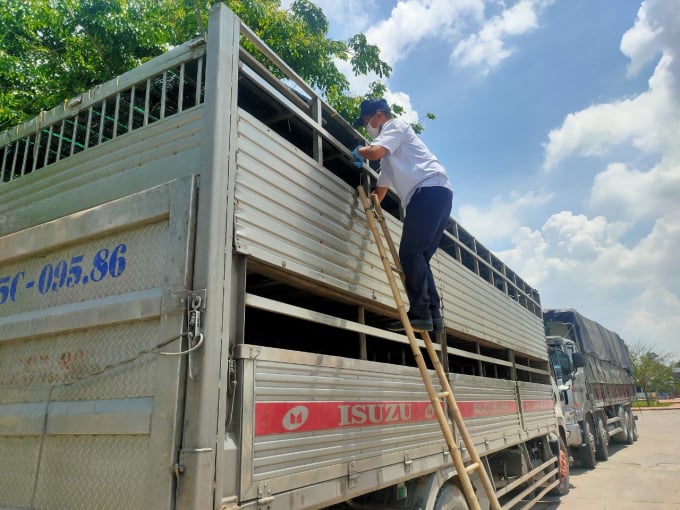
Pork imported to Vietnam was checked at a border gate. Photo: CTY.
According to the Department of Animal Health, Vietnam imported 214,000 tons of meat including 112,000 tons of pork, 41,000 tons of beef and buffalo meat and 60,000 tons of poultry meat. Therefore the rumor that Vietnam imported over 618,000 tons of meat of all kinds including 256,000 tons of pork was not correct.
Vietnam imported 259,000 tons of meat of all kinds in 2018 including 33,000 tons of pork, accounting for 12.7%. The country bought 270,000 tons of foreign meat in 2019, including 63,000 tons of pork, accounting for 23.3%. In 2020 Vietnam's pork imports were estimated at 599,000 tons with 225,000 tons of pork, accounting for 37.6%.
According to the General Statistics Office of Vietnam, Vietnam imported the volume of pork equivalent to 3.6% of the domestic pork production.
The volume of imported pork in 2018 accounted for 0.8% compared to the domestic pork production (33,000 tons/3.8 million tons). Vietnam's imported pork in 2019 accounted for 1.9% in comparison to the domestic pork production (63,000 tons/3.3 million tons). In 2020 imported pork accounted for 6.4% compared to the domestic production (225,000 tons/3.4 million tons).
Vietnam imported 112,000 tons of pork in the first eight months of 2021, down 50% compared to the same period in 2020 and accounting for 3.6% in comparison to the domestic pork production of 3 million tons.
It could be said that imported pork in the first eight months of this year accounted for 3.6% of the total domestic pork production which could not lead to a sharp decline in pork prices, especially from May 2021 up to now.
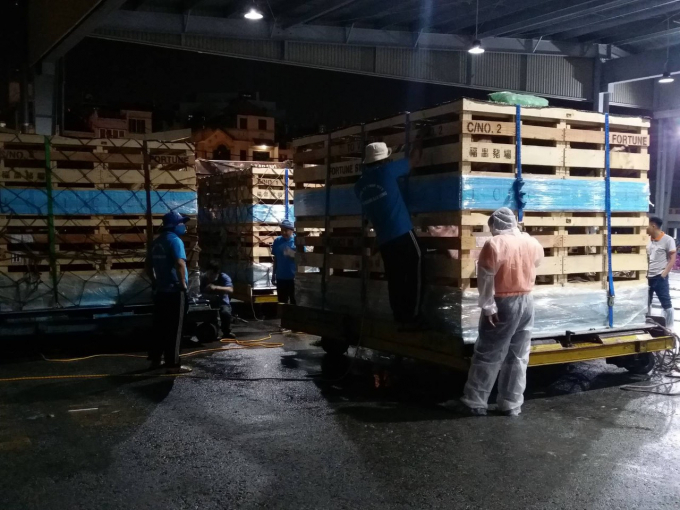
The rumor that Vietnam imported over 681,000 tons of meat including 256,000 tons of pork in the first eight months of 2021 was not correct. Photo: CTY.
In particular Vietnam imported more pork in 2020 because African swine fever (ASF) spread nationwide, forcing authorities to kill 6 million pigs. The total number of sows and hogs plunged by nearly 30% causing a severe shortage of meat, pushing pork prices to record levels up to VND100,000 per kilogram at a certain time which had a great impact on consumers and caused the consumer price index (CPI) to increase.
To deal with the situation by early 2020 the Prime Minister and the Deputy Primes Ministers a long with leaders of the Ministry of Agriculture and Rural Development and the Ministry of Industry and Trade organized dozens of conferences with the participation of a number of the relevant ministries, agencies and enterprises. Synchronous measures were taken to bring pork prices down to affordable levels for consumers, keeping the average CPI in 2020 below 4% according to the resolution of the National Assembly which included the import of frozen pork and live pigs to Vietnam.
Moreover the Ministry of Agriculture and Rural Development (MARD) organized numerous meetings with localities and big livestock enterprises to discuss about the application of bio-security measures to the prevent and control ASF, recovering pig herd to meet the domestic pork demand and to achieve domestic price stability.
Thanks to drastic measures of the Government and the MARD Vietnam imported approximately 225,000 tons of pork and 430,000 live pigs for slaughtering which contributed to increasing pork supply and lowering prices in the domestic market so that inflation was under control.
From the beginning of 2021 up to now the domestic market has seen ample meat supply as animal diseases in particular ASF, blue ear disease and foot-and-mouth disease were under control. Currently there are only two bird flu outbreaks which have not yet pass 21 day without new infections.
As a result, Vietnam imported 112,000 tons of frozen pork in the first eight months of 2021, a decrease of 50% as compared to the same period in 2020.
According to meat trading companies most imported frozen pork and chicken meat were shipped to kitchens in industrial zones. However consumption has recently faced difficulties due to the widespread of the Covid-19 pandemic.
Particularly import enterprises have suffered huge economic losses as they had to pay additional costs for cold storage. Many enterprises have suspended their operations for months, bearing losses of tens of billions of dong and struggling to pay salaries for their employees.
Besides, meat products imported to Vietnam are required to be quarantined strictly in accordance with the regulations of World Organization for Animal Health (OIE) and Animal Health Law of Vietnam.
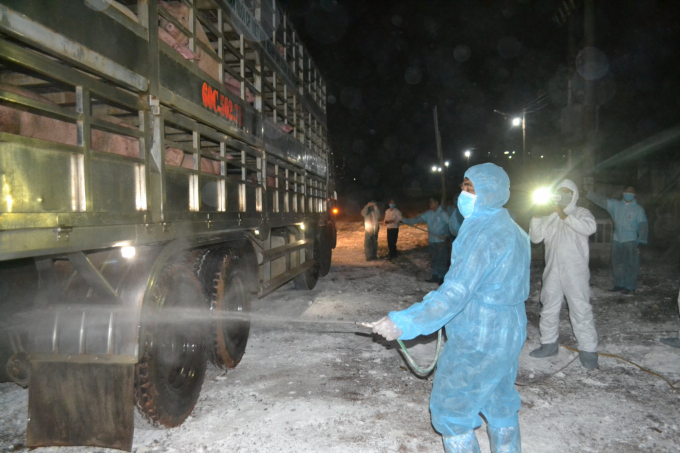
Meat products and live livestock must comply with quarantine measures of OIE and Vienam. Photo: CTY.
Export countries must provide the Department of Animal Health with the dossiers on animal disease epidemics, food safety status of meat products as foundation for import risk analysis.
The Department of Animal Health said the department conducted a appraisal in each meat processing plant. Only meat products that meet the standards of food safety and animal quarantine can be imported to Vietnam.
Imported meat products are quarantined according to the provisions of Circular No.25/2016/TT-BNN-PTNN dated June 30, 2016 of the MARD. All shipments of meat imported into Vietnam must be kept at border gates undergoing strict checks and quality control and testing samples for physical, chemical, sensory, and microbiological criteria before being taken to market.
The Department of Animal Health urges the animal health agencies at border gates to periodically test samples for residues in imported meat.
Translated by Mai Tham
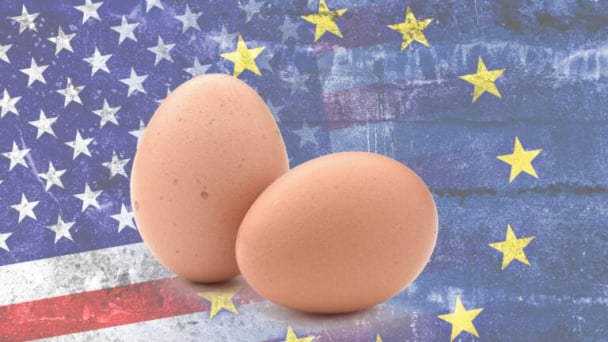
(VAN) In northwestern Europe, poultry farmers can take full advantage of exceptionally high prices.
/2025/04/18/0614-0-nongnghiep-120604.jpg)
(VAN) Cashew nuts are not only a nutritious food but also a golden raw material in both cuisine and export, contributing to elevating Vietnamese agricultural products onto the global stage.

(VAN) Orders from wood processing businesses in Bac Kan Province for export to the U.S. have been cancelled or suspended, even all orders cancelled in some cases.

(VAN) Vietnam is regarded as one of the gateways to enter the Halal market in the Asia-Pacific region, which has the world’s largest Muslim population.

(VAN) With an annual production scale of around 5 million tons, Vietnam has enough potential to transform rice bran into a key export commodity if combined with deep processing.
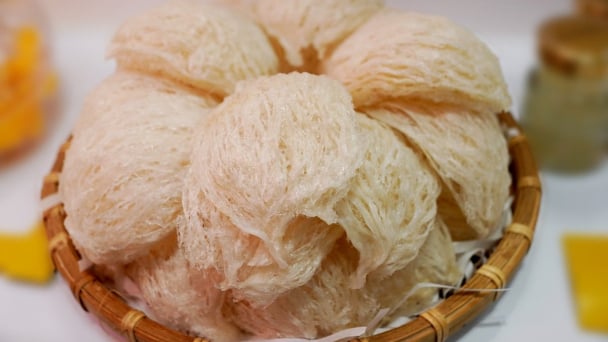
(VAN) As the world’s largest consumer of bird’s nest products, China is gradually becoming a 'golden' market for Vietnamese bird’s nests.
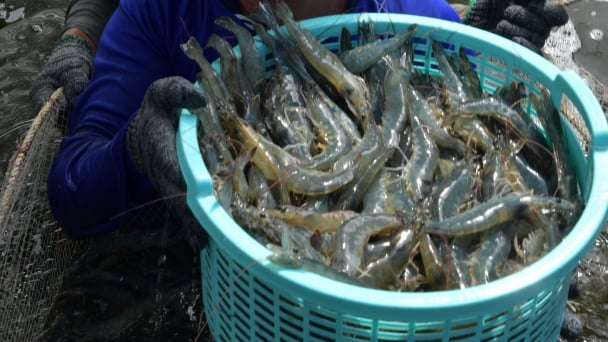
(VAN) Deputy Minister Phung Duc Tien has directed the fishery sector to diversify its farming objectives during the conference reviewing Q1 performance and outlining tasks for April and Q2/2025.